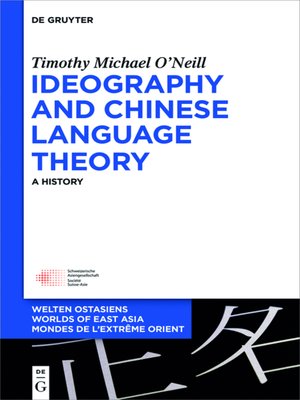Ideography and Chinese Language Theory
ebook ∣ A History · Welten Ostasiens / Worlds of East Asia / Mondes de l'Extrême Orient
By Timothy Michael O'Neill

Sign up to save your library
With an OverDrive account, you can save your favorite libraries for at-a-glance information about availability. Find out more about OverDrive accounts.
Find this title in Libby, the library reading app by OverDrive.



Search for a digital library with this title
Title found at these libraries:
| Library Name | Distance |
|---|---|
| Loading... |
This book is a much-needed scholarly intervention and postcolonial corrective that examines why and when and how misunderstandings of Chinese writing came about and showcases the long history of Chinese theories of language. 'Ideography' as such assumes extra-linguistic, trans-historical, universal 'ideas' which are an outgrowth of Platonism and thus unique to European history. Classical Chinese discourse assumes that language (and writing) is an arbitrary artifact invented by sages for specific reasons at specific times in history. Language by this definition is an ever-changing technology amenable to historical manipulation; language is not the House of Being, but rather a historically embedded social construct that encodes quotidian human intentions and nothing more. These are incommensurate epistemes, each with its own cultural milieu and historical context. By comparing these two traditions, this study historicizes and decolonializes popular notions about Chinese characters, exposing the Eurocentrism inherent in all theories of ideography. Ideography and Chinese Language Theory will be of significant interest to historians, sinologists, theorists, and scholars in other branches of the humanities.







